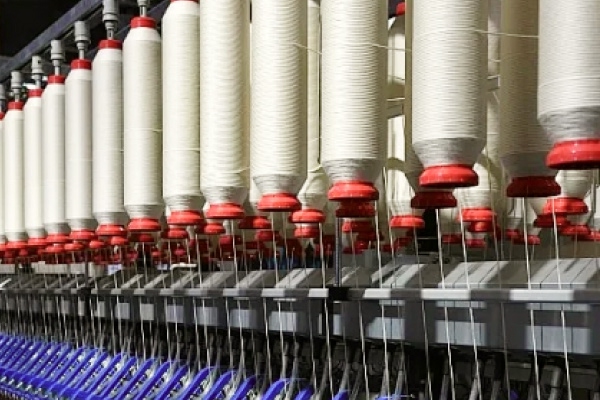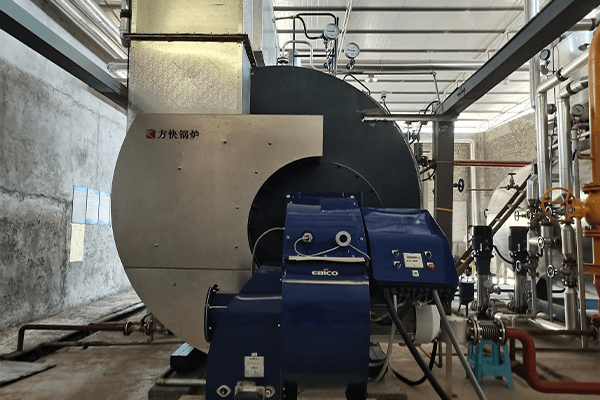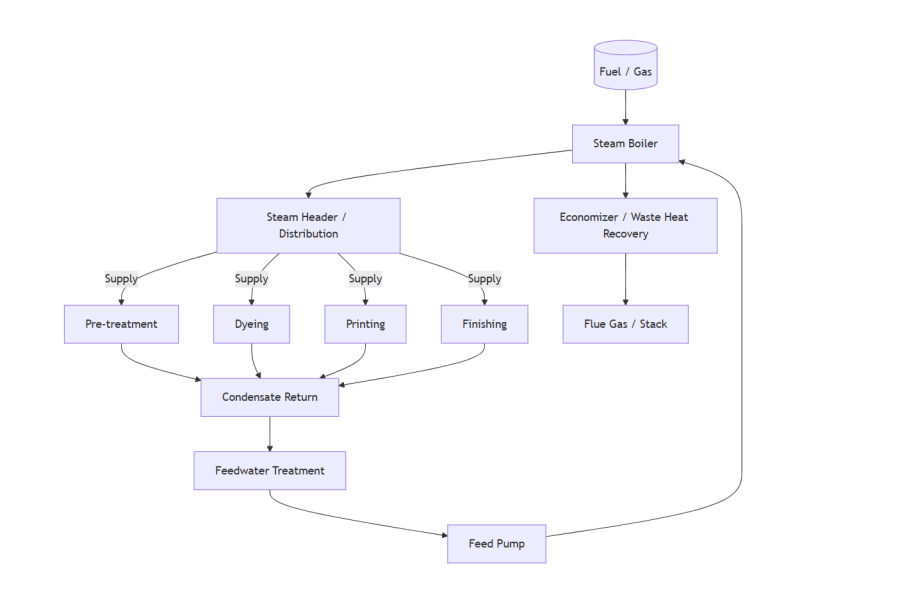In the textile industry, steam boilers are essential equipment because they provide the steam required for multiple production stages. Without a reliable steam source, processes such as pre-treatment, dyeing, printing, and finishing would face quality and consistency issues.
So, which boiler is used in the textile industry? The answer depends on production size, steam pressure requirements, fuel availability, and environmental regulations.
-
Fire-tube steam boilers are often used in small to medium-sized textile plants. They are simple to operate, cost-effective, and suitable for moderate steam demands.
-
Water-tube steam boilers are widely preferred in large textile factories because they can produce high-pressure steam quickly and efficiently. Their design also allows for higher capacities and better heat transfer efficiency.
-
Gas-fired steam boilers and biomass steam boilers are becoming popular choices because they meet modern energy efficiency standards and reduce greenhouse gas emissions.
Modern textile facilities increasingly prioritize boilers with high thermal efficiency and low emissions to achieve both cost savings and environmental compliance.
What Is the Use of Steam in the Textile Industry?
Steam plays a central role in nearly every stage of textile production. So, what is the use of steam in the textile industry? Its applications can be divided into four main areas:
-
Pre-treatment: Steam heats the water used to remove natural impurities, wax, and oils from raw fibers. This step ensures that fabrics are clean and ready for dyeing and finishing.
-
Dyeing: Stable temperatures and moisture levels are crucial for uniform color penetration. Steam provides both, ensuring that dyes adhere evenly to fabric fibers.
-
Printing: Steam is used to fix pigments and dyes onto the fabric during printing, preventing color bleeding or fading.
-
Finishing: Processes such as shrinking, softening, and calendaring rely on steam to give fabrics their final appearance, texture, and quality.
In short, steam ensures energy efficiency, consistent product quality, and improved process control across the textile industry.
What Does Steam Do to Fabric?
Many people ask: what does steam do to fabric? Steam has multiple benefits:
-
Improves dye penetration: Steam opens up the fabric’s fiber structure, allowing dyes to enter more effectively and uniformly.
-
Softens and relaxes fibers: This helps reduce wrinkles, giving the fabric a smoother finish.
-
Enhances final appearance: Steam-assisted finishing processes make fabrics softer, shinier, and more attractive to consumers.
The result is fabric that not only looks better but also feels better and retains its color vibrancy for a longer time.
gas steam boiler for textile industry
What Is the Use of a Boiler in the Dyeing Process?
Dyeing is one of the most steam-intensive operations in textile manufacturing. So, what is the use of a boiler in the dyeing process?
A boiler supplies the heat and steam necessary to maintain precise temperature and pressure levels. These conditions are essential because even slight variations can lead to inconsistent colors or fabric defects.
Modern dyeing plants often use high-efficiency water-tube boilers with integrated economizers and condensers. These features allow facilities to recover waste heat from flue gases, improving energy efficiency and reducing fuel consumption. As a result, textile mills can lower operating costs while meeting environmental standards.
For customized boiler solutions tailored to your textile production needs, contact us today to speak with our technical experts.
Which Type of Steam Boiler Should Textile Plants Choose?
Textile manufacturers often wonder: which type of boiler should textile plants choose? The decision depends on several factors:
-
Production capacity: Large-scale plants with high steam demands should opt for water-tube boilers, while smaller facilities can rely on fire-tube models.
-
Fuel availability: Natural gas, biomass, and coal are common fuel options. Gas-fired boilers are favored for their low emissions and high efficiency, while biomass boilers offer a renewable energy alternative.
-
Environmental regulations: Many countries now require textile mills to meet strict emission limits, pushing manufacturers toward eco-friendly boiler technologies.
Ultimately, the best boiler for textile industry operations is one that balances efficiency, reliability, and sustainability while meeting the plant’s specific production needs.
FAQs About Steam and Boilers in the Textile Industry
1. Which boiler is used in the textile industry?
Both fire-tube and water-tube boilers are used. Water-tube boilers are preferred for large plants requiring high-pressure steam, while fire-tube models suit smaller facilities.
2. What is the use of steam in the textile industry?
Steam provides the heat and moisture needed for pre-treatment, dyeing, printing, and finishing processes.
3. What does steam do to fabric?
Steam enhances dye penetration, softens fibers, and gives fabrics a smooth, wrinkle-free finish.
4. Why is a boiler important in the dyeing process?
Boilers maintain stable temperature and pressure conditions to ensure consistent dye quality and energy efficiency.
5. Which type of boiler is most efficient for textile mills?
Gas-fired and biomass boilers offer high efficiency and lower emissions, making them ideal for modern textile plants.
Get your best price
Quickly compare 3 FREE quotes
- Engineer quick quote
- The overall delivery speed is fast
- Financial choice
- Low installation costs and cost savings
25 years+ of boiler R&D
More than 20 innovative technologies



